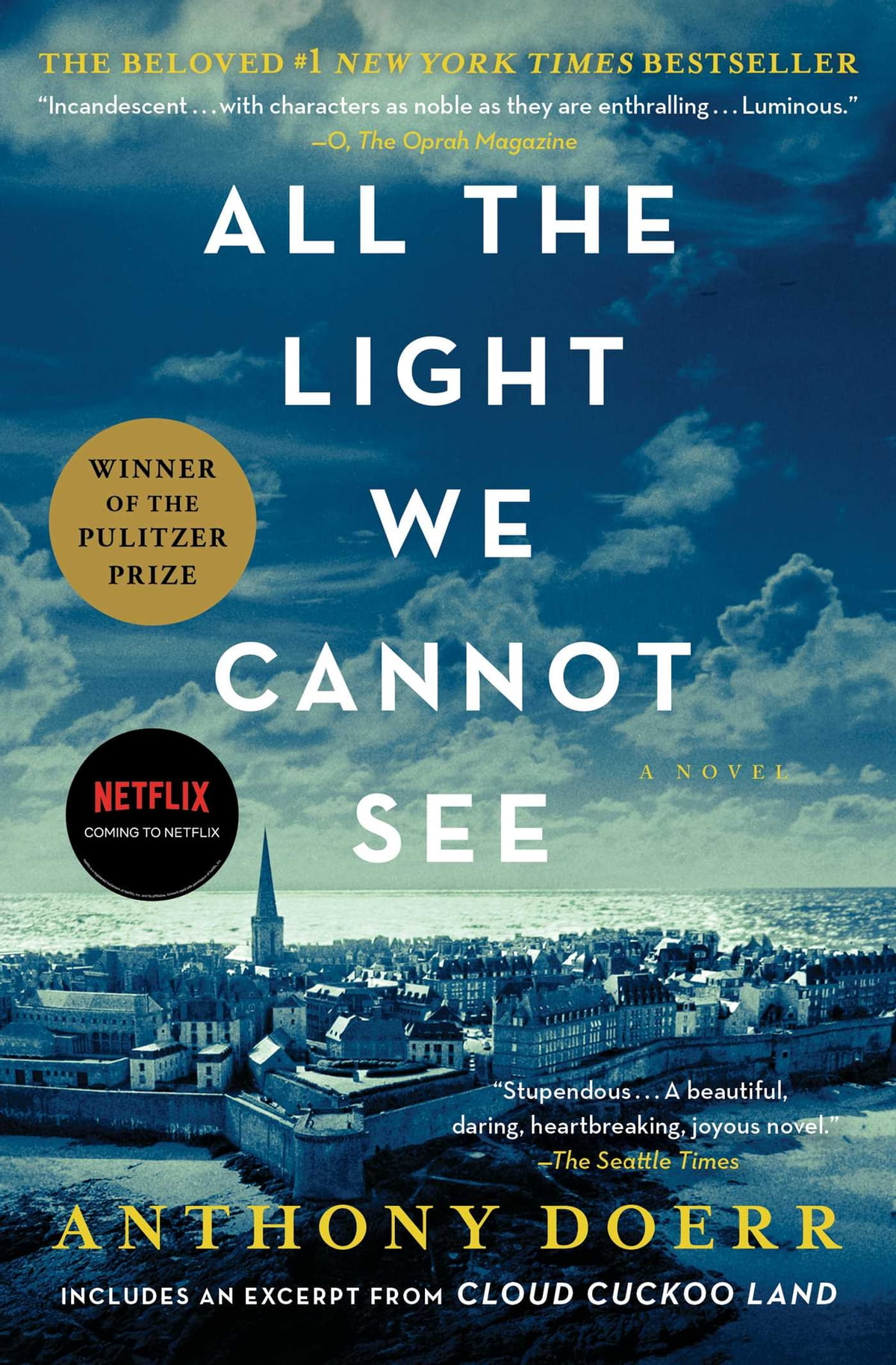
written by Anthony Doerr
rated 10 / 10
Time is a slippery thing: lose hold of it once, and its string might sail out of your hands forever.
Anthony Doerr
A riveting and insightful novel, descriptive in the most poetic ways. Undoubtedly the best historical fiction I have and will have read this year.
Despite losing her vision from a young age, Marie-Laure LeBlanc lives in peace and joy in Paris with her father, who works at a museum. However, as the Nazis invade their beloved city and World War II sweeps over Europe, the two are forced to flee to the coastal city of Saint-Malo. There, Marie-Laure’s secluded great uncle Etienne and his warm housekeeper take them in, and all seems well again. But with them, in an inconspicuous model of the walled city that her father built, might be the museum’s deadliest and most priceless jewel — the Sea of Flames.
Meanwhile, hundreds of miles away, Werner Pfennig grows up in an orphanage in a German mining town with his sister. Upon finding and fixing a radio, he unlocks a new world from places far beyond his imagination, and a hidden skill for engineering radios emerges within him. For his talent, he is recruited first into an elite school and then into a team responsible for tracking down illegal transmissions. But as he finds himself closer and closer to Saint-Malo while sinking deeper and deeper into the Nazi regime, what will he choose in the end?
In his intricately woven tale, Doerr captures the sensations of wartime flawlessly, even just through describing the sounds that sightless Marie-Laure can hear. His words, written in a strangely moving structure, are some of the most eloquent and moving I’ve seen in my life; they’re like the lyrics of a song flowing through the pages. The story itself is craftily told by alternating between flashbacks of Marie-Laure and Werner’s life before the war and during the siege of Saint-Malo. Doerr really does not include a single irrelevant word in his work; every word, every metaphor, every idiom is carefully planned and contributes to the string of plots that all come together to form a twisting web in the end.
There were moments in All the Light We Cannot See that warmed my heart, and moments that broke it. Moments that left me devastated, and moments that left me on the verge of tears. Even as night fell I still read, page after page after page, absorbed Marie-Laure and Werner’s alluring stories like a sponge soaking up water.
I won’t deny that there are flaws to Doerr’s story. For example, the stereotypes of the Nazi (Sergeant von Rumpel is an example of that). But what work doesn’t have its imperfections? Within this book, the beauties far surpass the tiny spots of ugliness.
If you ever find yourself opening the pages of this thought-provoking book, and I hope you do, will you be like me? Will you forever remember that day when an imaginary Frenchman, our dearest Marie-Laure’s grandfather, spoke to Werner and thousands of others on the radio, and ignited a light in our minds?
Open your eyes and see what you can with them before they close forever.
Anthony Doerr

Leave a Reply